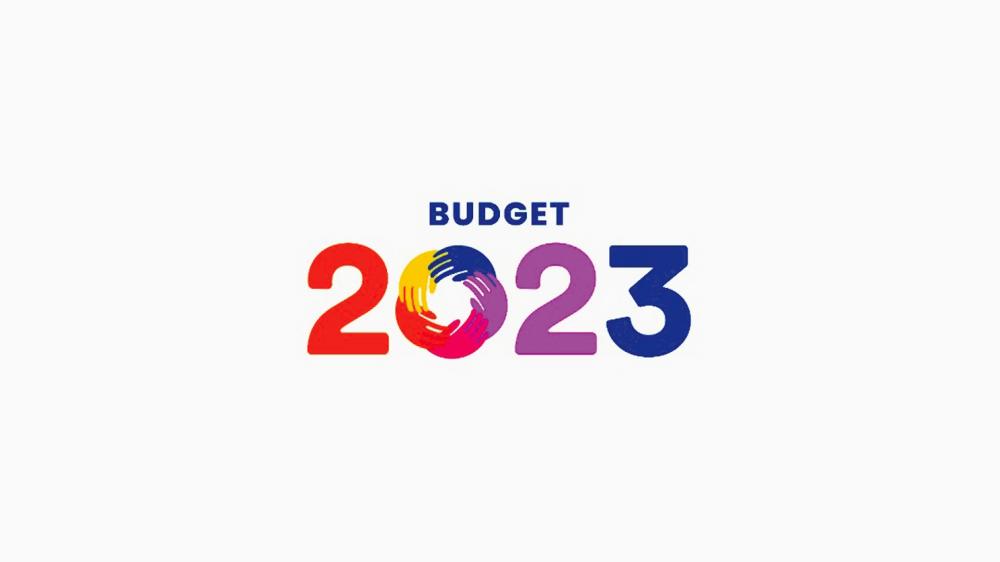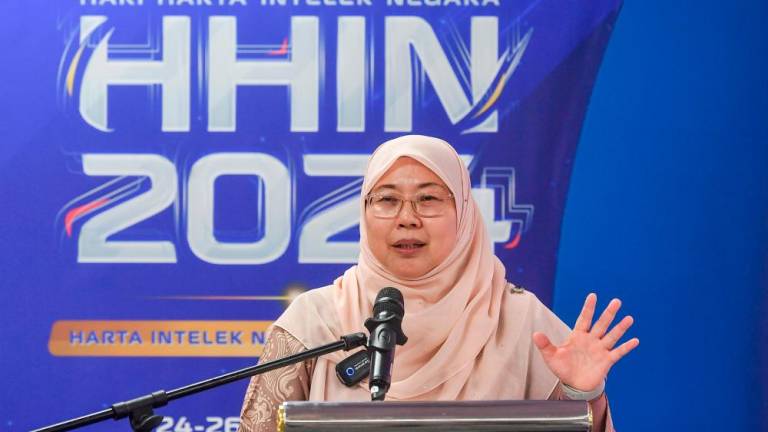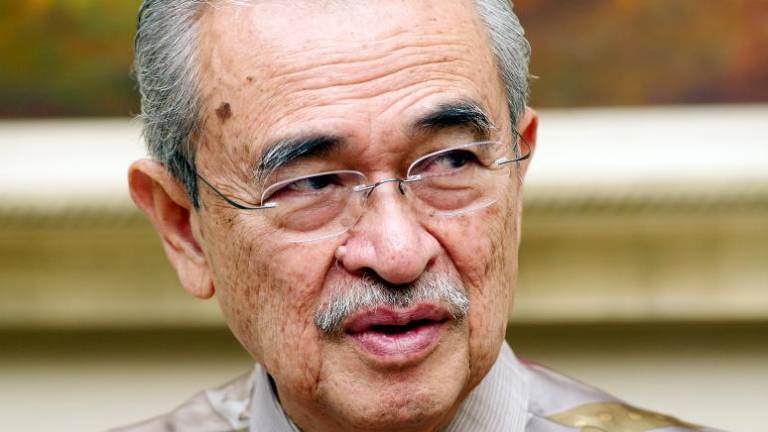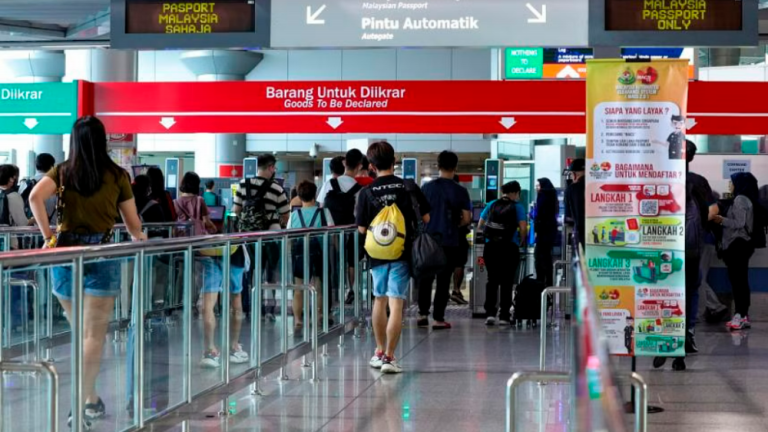PETALING JAYA: Budget 2023’s focus on digitalisation, environmentalism and financing for small and medium enterprises (SME) is laudable but it falls short on tax cuts, according to Small and Medium Enterprises Association Malaysia (Samenta) national secretary Yeoh Seng Hooi.
Yeoh said the incentives are pluses to steer SME to transform and pivot to meet new challenges such as environmental, social, and corporate governance (ESG) initiatives.
On the introduction of carbon tax, he said the government’s intent is “laudable” and is line with its aim to achieve the net zero carbon target by 2050 but pointed out that SME are still in a recovery period and need time to adjust.
“SME are only starting to recover and shouldn’t be burdened by any carbon tax too soon. It should be gradually phased in for SME. They need technical guidance, training, financial support from the government to revamp their operations and business strategies for the reduction of carbon emissions,” Yeoh told SunBiz.
He added that the consensus of its members is subdued when it comes to real benefits for SME. Yeoh remarked that the reduction in income tax from 17% to 15% was welcomed but falls short in terms of quantum.
“We had hoped for at least RM500,000 to RM1 million. The digitalisation and automation grants were there. Hope to see continued fiscal support with more allocation for the market development grants. On the whole, fewer hits and more misses,” he said.
Yeoh noted the support in soft loans for agro food production, women entrepreneur development and the financing guarantees are encouraging for SME business expansion.
“However, the biggest constraint to business growth are talent and labour. The cost of doing business has to be brought down, with fewer regulations and faster approvals of incentives, grants (and so on),” he said.
On whether the incentives are sufficient to support SME that were affected during the pandemic, Yeoh acknowledged that Budget 2023 has provided some targeted aid to the affected sectors, particularly to those in retail and tourism, which is a step in the right direction.
“Recovering the losses is on a much longer runway provided the global economy does not take a major hit in 2023,” he remarked.
In Budget 2023, the government has shown its support for equity crowdfunding (ECF) which is an alternative form of raising capital.
Commenting on it, Yeoh said all forms of alternative financing give additional options to SME. For those that are highly geared, equity financing may be the preferred option.
Meanwhile, SME Association of Malaysia national secretary general Chin Chee Seong said the budget allocation for small and medium-sized businesses is much lower in 2023 overall. However, he noted the government has allocated an additional RM20 billion in development expenditure.
Chin said more attention is given to micro enterprises but pointed out there are no significant or impactful allocations that will help SME that have been severely affected by the pandemic.
“Some efforts focus on the affected industry such as tourism, but do not see any immediate results. The Bank Negara Malaysia (BNM) fund of RM10 billion for SME in automation, digitisation, agriculture and tourism is still unclear and yet to see the details and how will be the actual implementation,” he told SunBiz.
“Budget 2023 makes less funding available for digitisation and automation. Most allocations from BNM are likely to be in the form of loans and target mainly high technology and environment where these are not the main business areas of Malaysian SME. We expect that Mida (Malaysian Investment Development Authority) and MDEC (Malaysia Digital Economy Corp) smart automation grants (SAG) will continue with more funding. It has been proven that SAG benefit SME,” he said.
Touching on ECF, Chin noted that many SME have benefited from the platform but said it has become increasingly difficult to raise funds in recent months, because of the current bad economic situation, as well as the fact that most investors have found the return on investment is too slow.
He proposed that the government look at encouraging the use of other funding platforms, such as security token offering.
Additionally, Chin advised SME to prepare to deal with carbon tax and sustainability as well as to look at low-carbon operations. The matching grant provided for carbon assessment will be helpful and timely.
Also commenting on the Budget, Associated Chinese Chambers of Commerce and Industry of Malaysia (ACCCIM) president Tan Sri Low Kian Chuan said the chamber is disappointed that tax reform, such as reintroducing the Goods and Services Tax (GST) and addressing the narrow tax base, was not addressed in Budget 2023.
“We propose to the government to preannounce the implement-ation of GST on Jan 1, 2024, giving a lead time of 12 months for the preparation. ACCCIM’s survey indicated that the business community supports GST implementation, and requires at least six to 12 months lead time for the implementation,” he said in a statement.
Additionally, it isconcerned about the proposed implementation of the multitiered levy in 2023.
Under the multitiered levy for foreign workers, companies which hire larger numbers of foreign workers will have to pay a higher levy.
The government intends to reallocate the additional levies collected to help employers that are implementing initiatives on automation, to help provide incentives and financial support to reduce reliance on foreign workers.
Meanwhile, he noted the government has resorted to a mix of incentives, grants and facilitation funds to encourage automation, digitalisation, ESG and also promote the development of agriculture, food security.
Low said Budget 2023 has met some of their recommendations for SME, namely the cut in personal income tax, a lower preferential tax rate of 15% as well as the tourism sector which will be given substantial fiscal support.
“(The) cut in personal income tax for the chargeable income between RM50,000 and RM100,000 will ease the financial burden on tax payers with tax savings between RM250 and RM1,000.
“SME will enjoy a lower preferential tax rate of 15%, a 2% percentage point cut from 17% currently for the first chargeable income of RM100,000 will result in RM2,000 savings for 150,000 tax payers. This comes in handy to help ease the cost of doing business for SMEs, which have already burdened with substantial increases in business and operating costs.”
Low hopes the application process for accessing to various funds and financing facilities be simplified for ensuring a quick disbursement of funds to eligible applicants.










